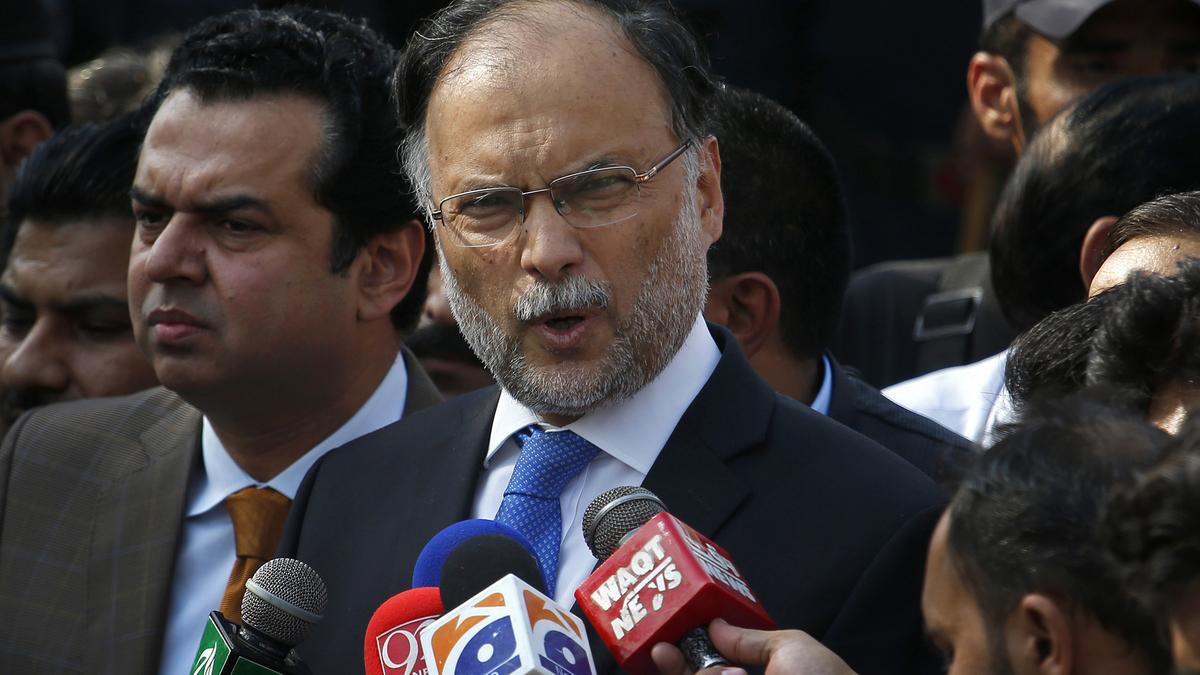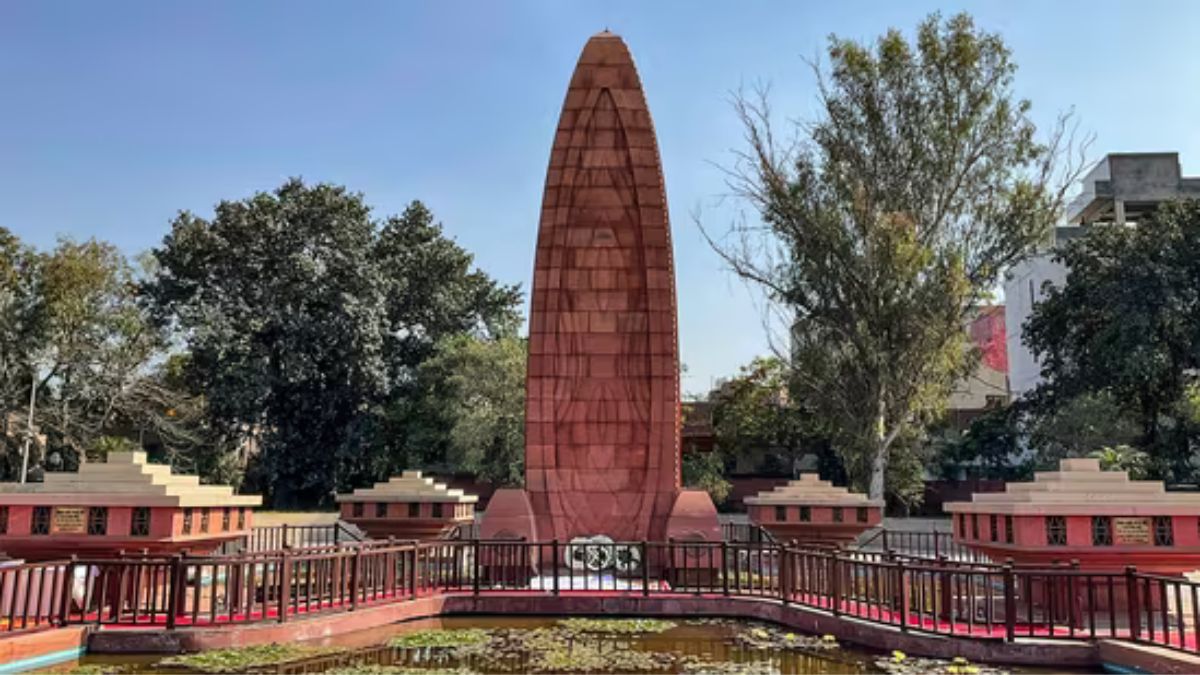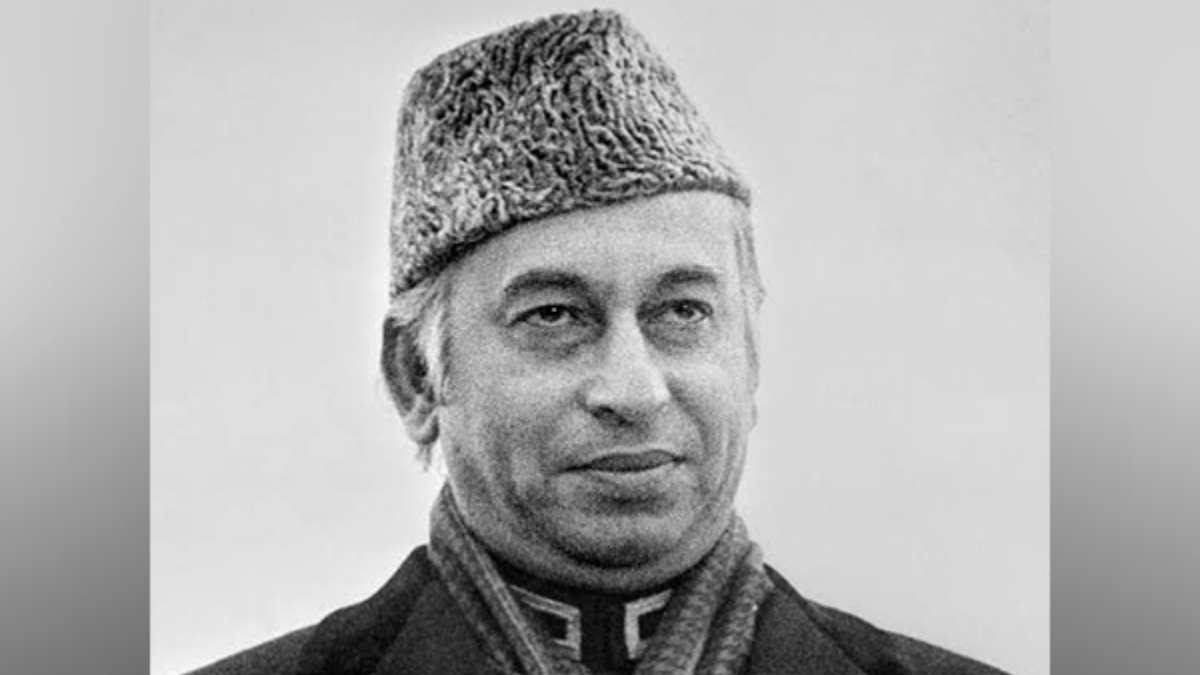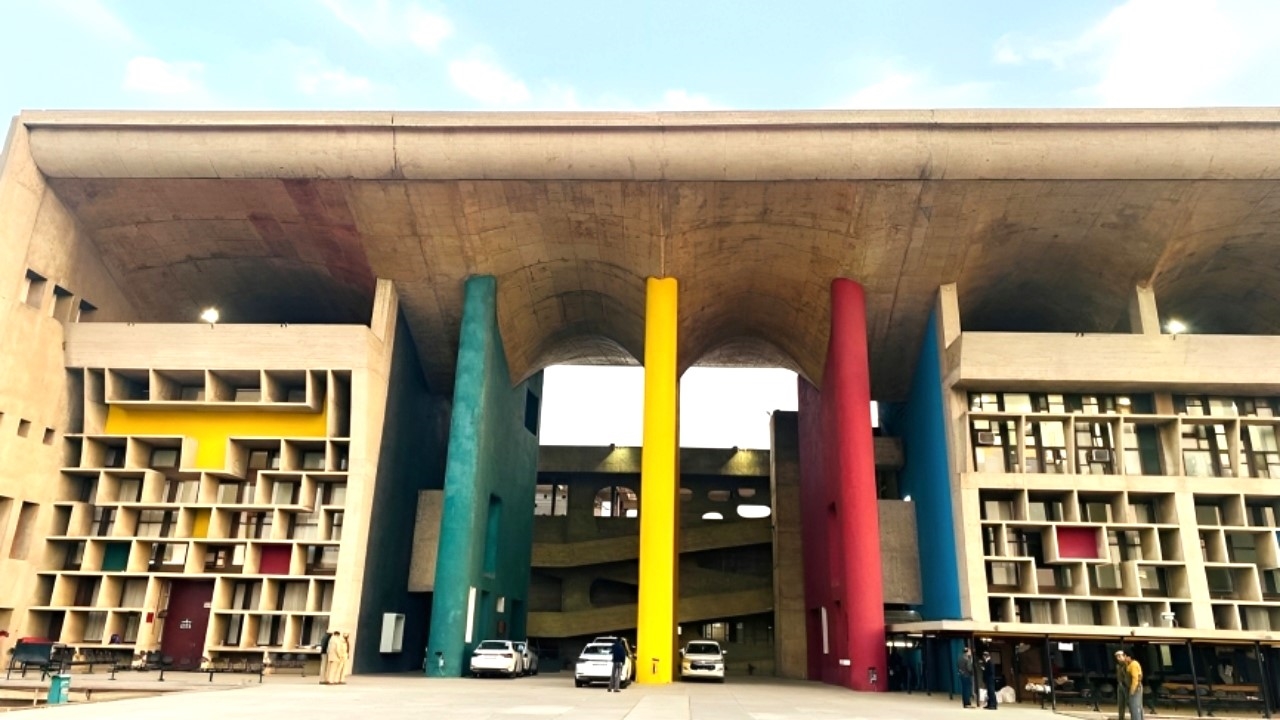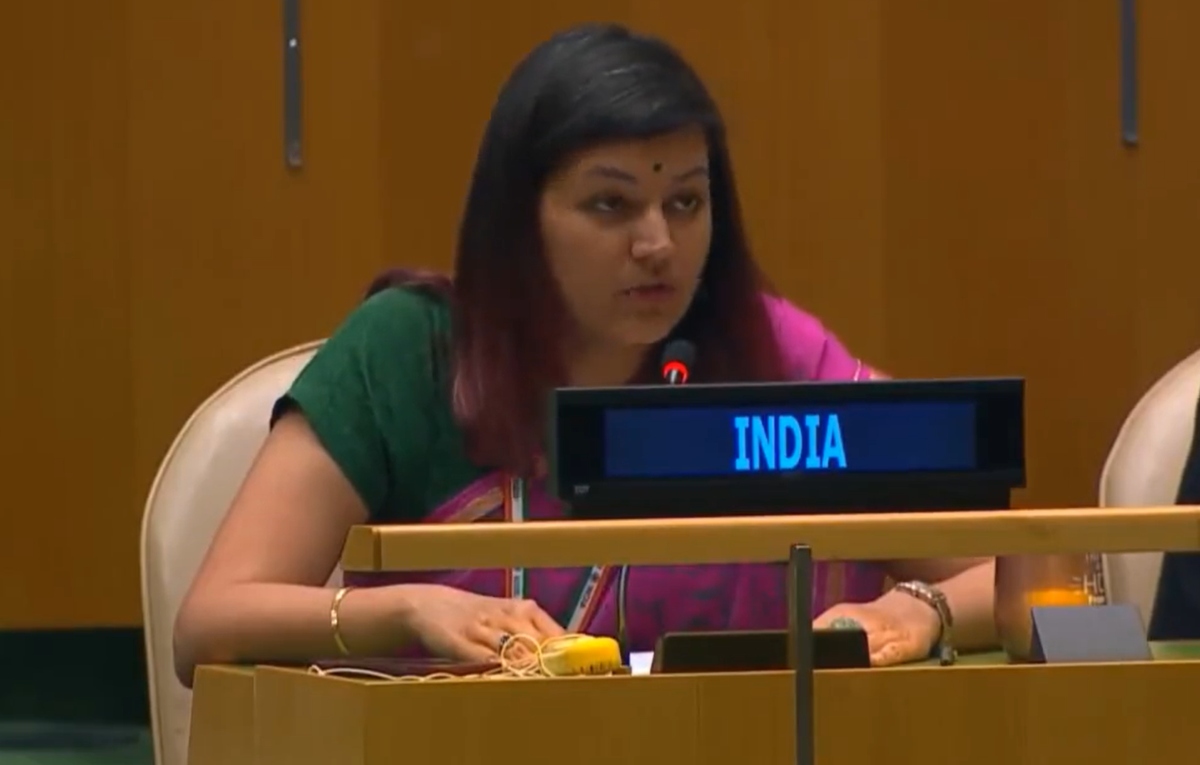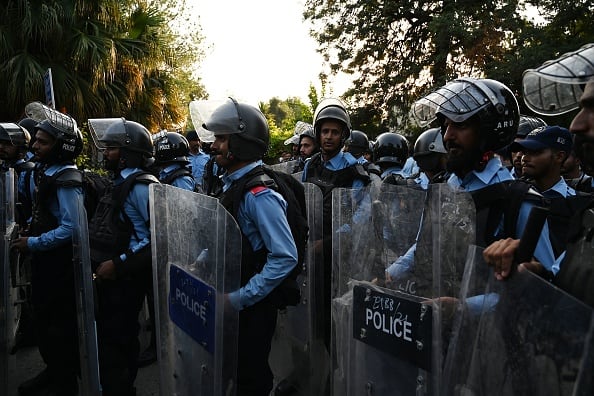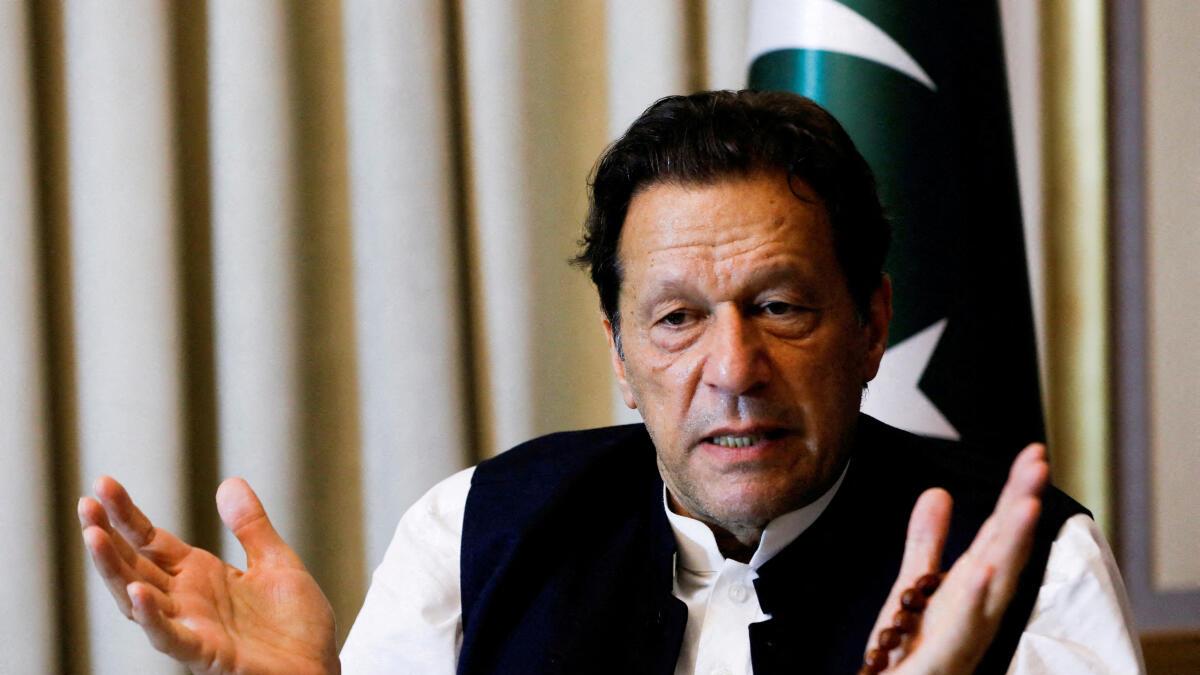
Explained: Pakistan’s emotive blasphemy laws
Al JazeeraIn recent years, a record number of cases have been filed under blasphemy law introduced during British colonial rule. “In a sense, all religious traditions have deep connections to specific sacred objects and would be hurt by perceived defilement of their religious traditions, but this has certainly taken heightened political significance in Pakistan.” Khan argues that the heightened significance of “blasphemy” in Pakistan, as opposed to other Muslim countries, is linked to the formation of the country in 1947 as a homeland for South Asia’s Muslims. All religious traditions have deep connections to specific sacred objects and would be hurt by perceived defilement of their religious traditions, but this has certainly taken heightened political significance in Pakistan A law inherited from British colonial rulers Pakistan inherited its blasphemy laws from its former British colonial rulers, who in 1860 introduced a set of laws related to religion in order to quell Hindu-Muslim violence in the Indian subcontinent. “With the rise of TLP and, in particular, the weaponisation and politicisation of ‘ishq-e-Rasool’, there is a greater ideological interest in blasphemy cases regardless of personal altercations,” says Mazhar. “Since then, even the semblance of momentum towards legislative debate has stalled and, more recently, been entirely reversed – far-right religious groups now campaign explicitly on protecting the blasphemy laws from any tampering.” Given a vast structure designed to create public pressure on the issue of blasphemy, lower-court conviction rates for blasphemy cases remain high, even in cases where the evidence is flimsy.
History of this topic
Pakistan court sentences Christian woman to death in blasphemy case
The HinduDozens rally in Pakistan after a Christian man is sentenced to death for blasphemy
Associated Press
Pakistan: Christian man sentenced to death for 'blasphemous' post that triggered mob attack last year
India TV NewsPakistani court sentences Christian man to death for posting hateful content against Muslims
Associated Press
Justice robbed by mobs: Blasphemy in Pakistan
Hindustan Times
Muslim mob in Pakistan lynches tourist over alleged blasphemy, torches police station
Live Mint
A Pakistani Christian accused of blasphemy and attacked by a mob has died of injuries
Associated Press
Christians attacked in Pakistan's Sargodha for ‘blasphemy’
Hindustan Times
Pakistani court sentences man to death and teenager to life in prison for insulting Islam’s prophet
Associated Press
Pakistan: When a blasphemy accusation is evidence; the sentence often death
Al Jazeera
Pakistan's Failure to Address Violence Against Religious Minorities Flagged by Rights Group
News 18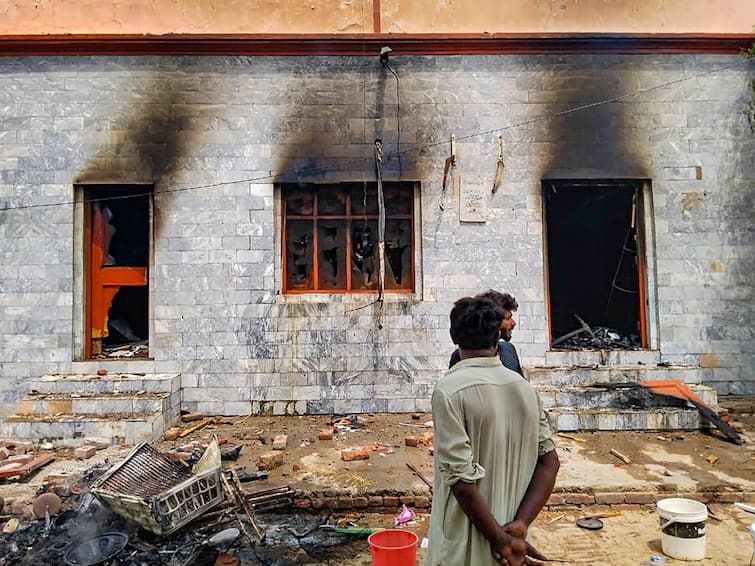
Pakistan: Christians Hold Sunday Services At Churches Torched By Mob Week After Violence
ABP News
Blasphemy laws | Faith and violence
The Hindu)
20 churches, 86 houses belonging to Christians burnt down by mob in Pakistan: Police
Firstpost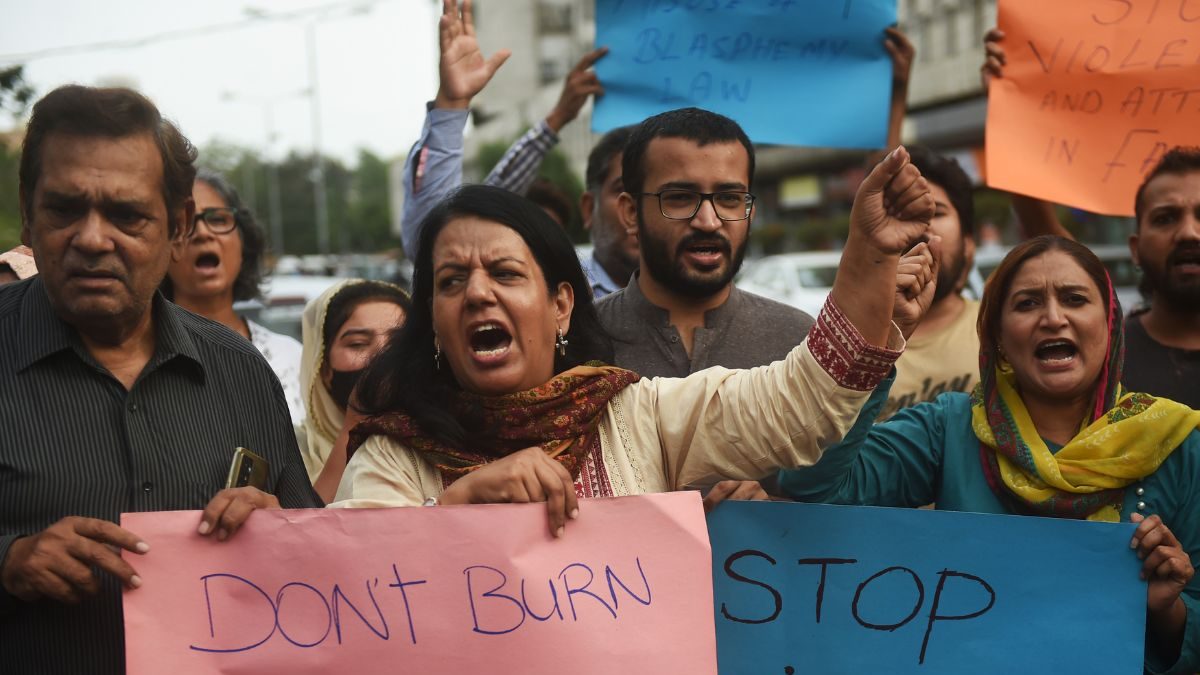
Why is Blasphemy a Sensitive Issue in Pakistan and What Do the Laws Say
News 18
135 arrested, case filed against 600 over church attacks in Pakistan's Faisalabad
India Today
Pakistan arrests 2 main suspects in attacks on churches in Faisalabad
India Today
Pakistan’s blasphemy law: All you need to know
Al Jazeera
Pakistan Blasphemy Row: 135 Arrested, Probe Ordered For Mob Attack On 21 Churches
ABP News
Pakistan Riots: Faislabad Jaranwala Christian Settlement Cordoned Off 50 Houses Burnt Over Blasphemy Allegations
ABP News
Pakistan arrests 146 as it launches probe into church attacks
Al Jazeera
Pakistan: Several churches vandalised by protesters in Punjab province over blasphemy allegations
India TV News
Mobs burn Christian churches, homes in Pakistan after blasphemy allegations
Al Jazeera
Christian youth in Pakistan gets death sentence for sharing blasphemous content
India Today
Man accused of blasphemy killed by mob at Pakistan political rally
The Independent
Opinion: Is God on the side of blasphemy laws?
LA Times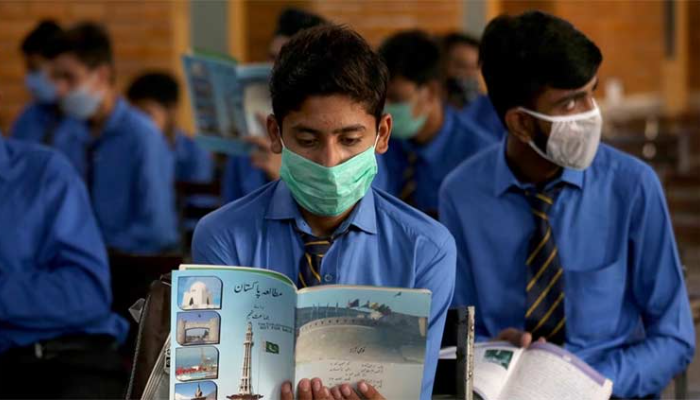
Pakistan: Human rights report shows the dire state of religious minorities, highlights instances of forced conversions
Op India
Pakistan’s court sentence man to death over WhatsApp blasphemy
Live Mint
Pakistani court sentences man to death for WhatsApp ‘blasphemy’
Hindustan Times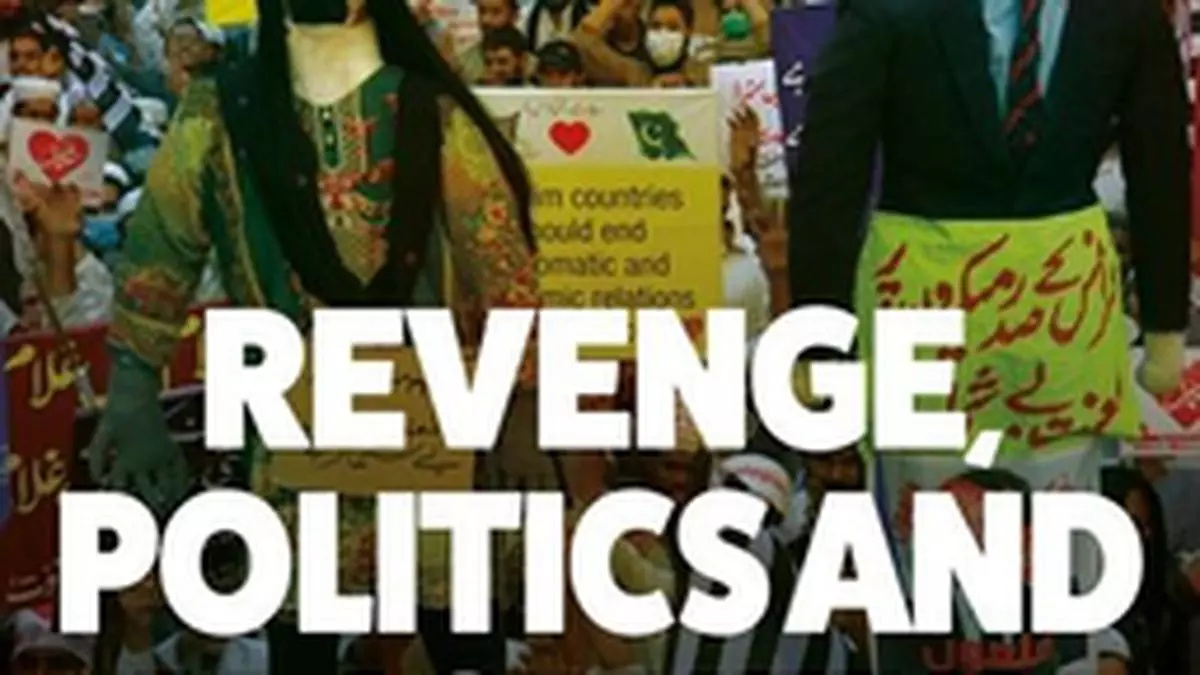
The blasphemy law in Pakistan and how it is used against minorities
The Hindu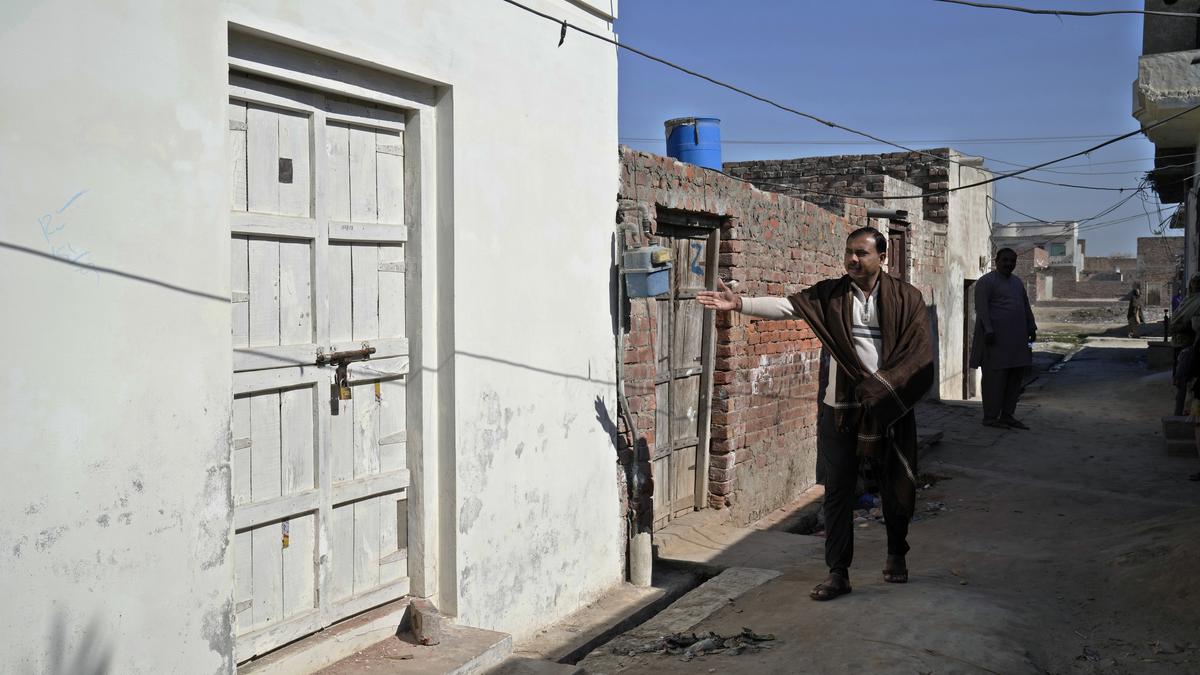
50 arrested over killing of blasphemy suspect in Pakistan
The Hindu
Police in Pakistan arrest 75 over blasphemy killing
India Today
Pakistan's new blasphemy laws may be 'weaponised' against minorities, says rights group
India Today)
Explained: How Pakistan has strengthened its laws against blasphemy
Firstpost
Hindu Man Saved from Lynch Mob in Pakistan: US Lawmaker, Civil Society Want Blasphemy Laws Scrapped
News 18
What is blasphemy? Why is the idea at odds with rule of law?
India TodayPakistan: Critics warn over blasphemy case against ex-PM Imran Khan
The Hindu
Pakistan: Six sentenced to death for lynching Sri Lankan national
Al Jazeera
Pakistani teacher killed for alleged blasphemy: Police
Al Jazeera
Pakistan has more religious violence than any other country: Reports
Op India
OPINION: Lynching of Sri Lankan National in Pakistan Exposes Islam's Tryst with Blasphemy
News 18
Pakistani police arrest four for ‘blasphemy’ over mosque argument
Al Jazeera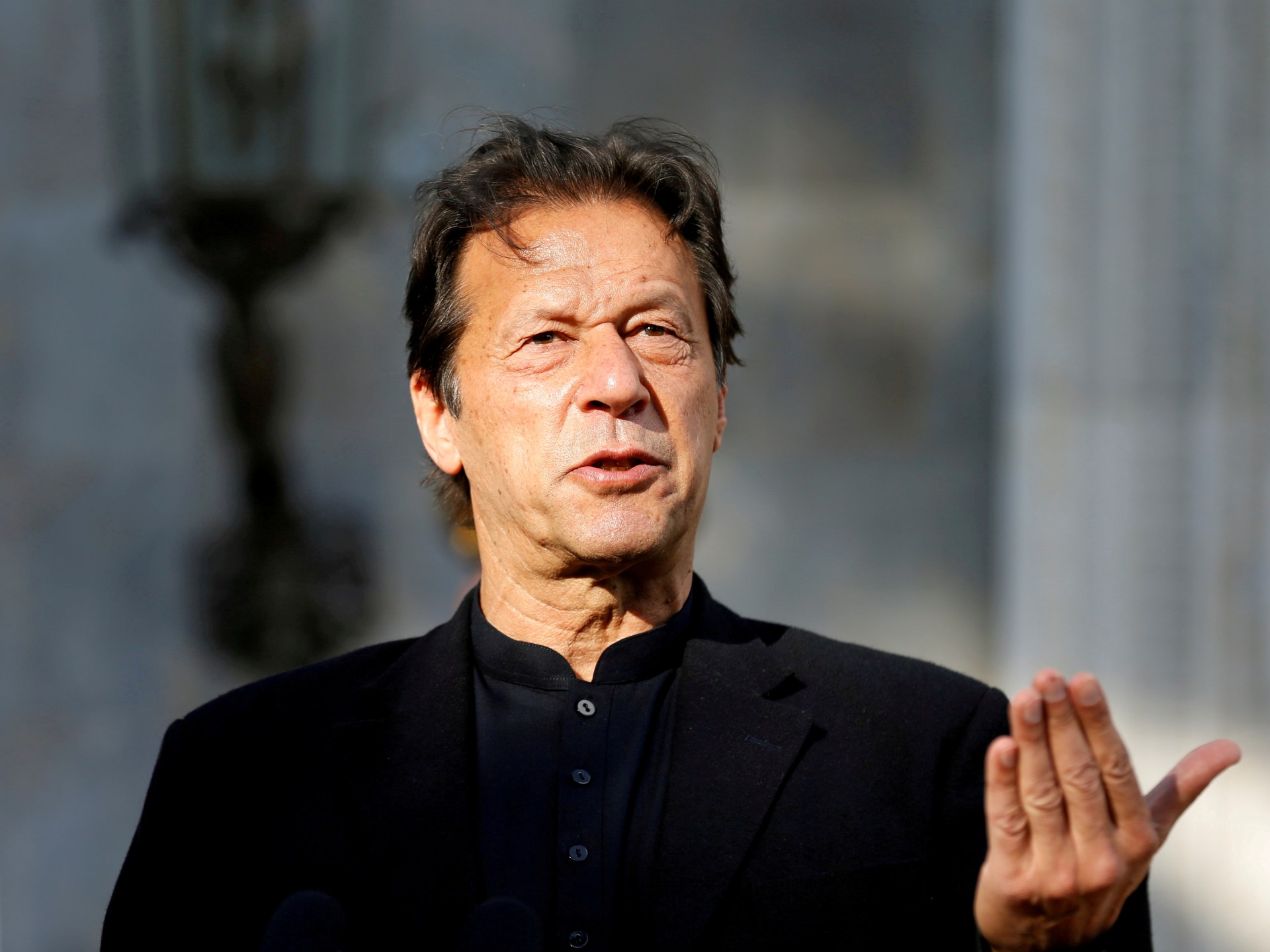
Pakistan PM calls for West to criminalise blasphemy against Islam
Al Jazeera
Pakistan court sentences three to death for blasphemy
Al Jazeera
US asks Pak to reform ’abused blasphemy laws’ after killing of citizen in court
Live Mint
US national shot dead in Pakistan courtroom during blasphemy trial
CNN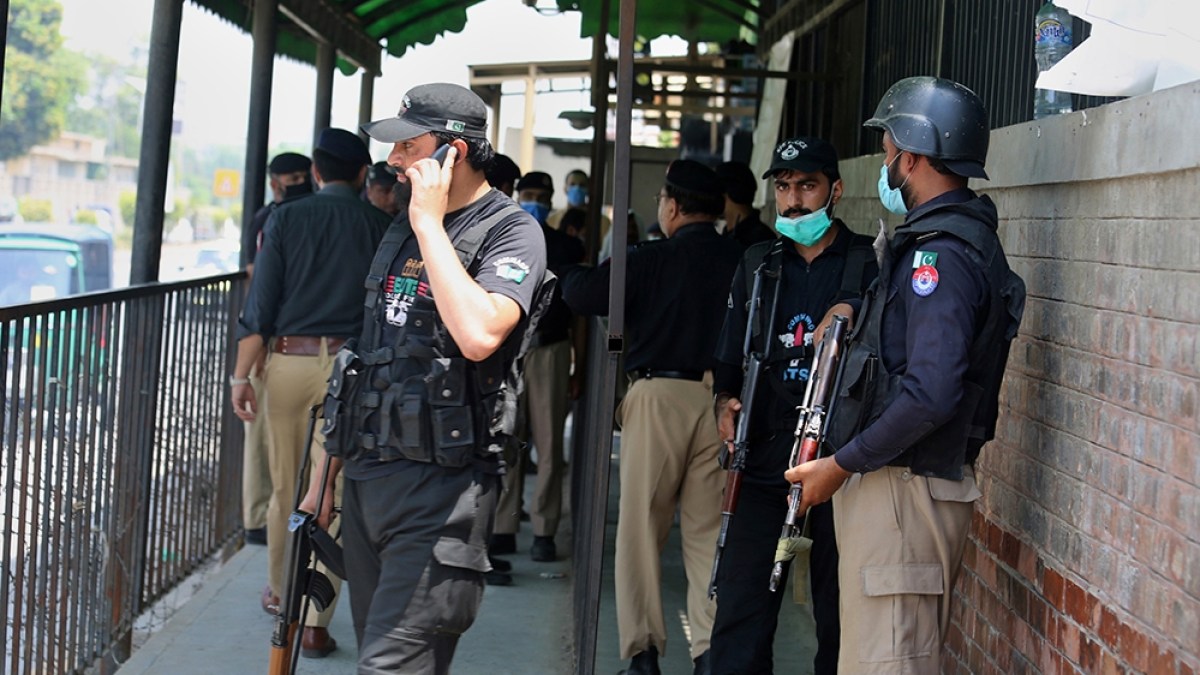
Man shot dead for ‘blasphemy’ in Pakistan courtroom
Al JazeeraDiscover Related

)





